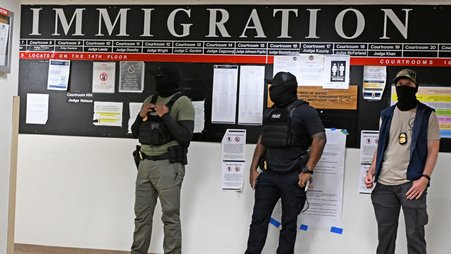
Latah County Courthouse, Moscow, Idaho
Judicial gag orders are often unconstitutional even when they’re carefully crafted. But when they’re not, they can create widespread confusion and wreak havoc on the free press.
An order entered in the Idaho murder trial of Bryan Kohberger is the latest example. The embarrassingly incoherent document purports to bind everyone from “law enforcement personal (sic)” to attorneys for victims’ families and “any interested party in this case.”
Worse yet, Judge Megan Marshall used “including, but not limited to” language to introduce the list of those supposedly gagged, leaving anyone not expressly mentioned to wonder if they are also silently censored and at risk of being held in contempt of court.
For example, the mayor of Moscow, Idaho, reportedly told journalists he can’t comment on the effects of the murders on the community due to the order. The police department issued a press release that it will no longer discuss the case with the media or public. A victim’s relatives and their attorneys had to file a motion asserting their otherwise obvious right to speak for themselves. A local 911 service requested clarification on whether it can comply with open records laws and release tapes requested by the press without running afoul of the gag order. Other agencies denied records requests outright, citing the order.
Over two dozen media outlets have challenged the order because it “restrained [their] rights to gather and publish information about this newsworthy matter” by prohibiting potential sources from making any statements except direct quotes from the public court record.
Judges, of course, are not dictators, or even legislators. They have no authority to issue orders directed to the public at large, or, for that matter to miscellaneous attorneys and government employees with an “interest” in their cases. And they certainly have no business overriding open records laws from the bench.
Their power extends only to the parties and attorneys appearing before them in their courtroom, and even then they are subject to Constitutional limitations and required to specifically explain the necessity for any gag order. Marshall only vaguely alluded to “preserv[ing] the right to a fair trial,” but the Supreme Court has repeatedly cited studies confirming jurors’ ability to set aside pretrial publicity. It has also explained that there are plenty other ways to avoid juror bias without censorship, like sequestering the jury or changing the trial location.
In theory, those whom Marshall unconstitutionally gagged should just ignore her order. She has no legitimate means of enforcing it. But if a judge has gone far enough off the rails to issue a flagrantly unconstitutional order, who is to say they might not dispatch compliant law enforcement officers to carry out their unlawful edicts? It wouldn’t be the first time.
And officials who must know they won’t be arrested for defying the order, like the mayor, now have a handy excuse to avoid the press.
It’s great that media outlets and others are challenging the gag order. There is a good chance they’ll ultimately succeed. But the press can’t make up for lost time — important stories will go untold and valuable perspectives will be permanently suppressed.
That’s why judges need training so this doesn’t happen in the first place. And state bar associations and other power brokers need to stop endorsing judges like Marshall who either don’t understand or hold outright contempt for the First Amendment.




